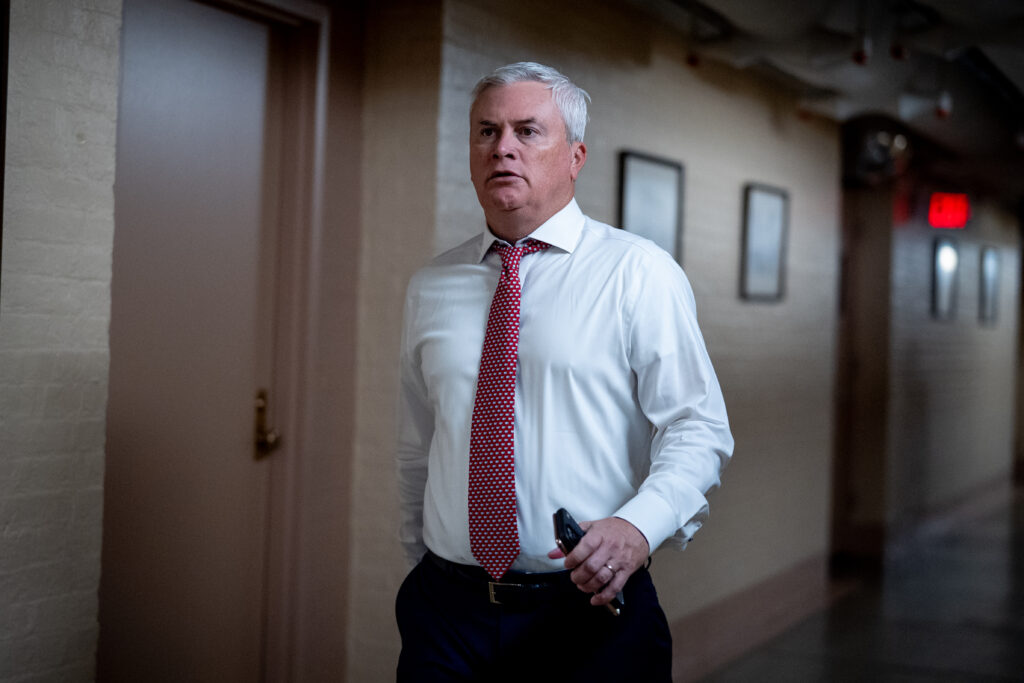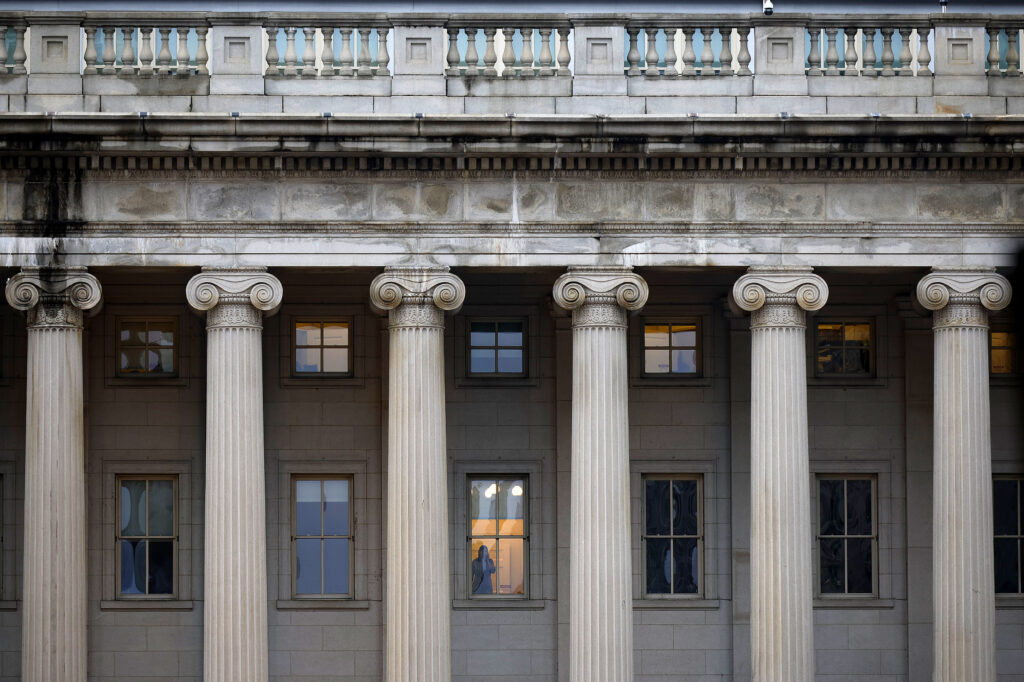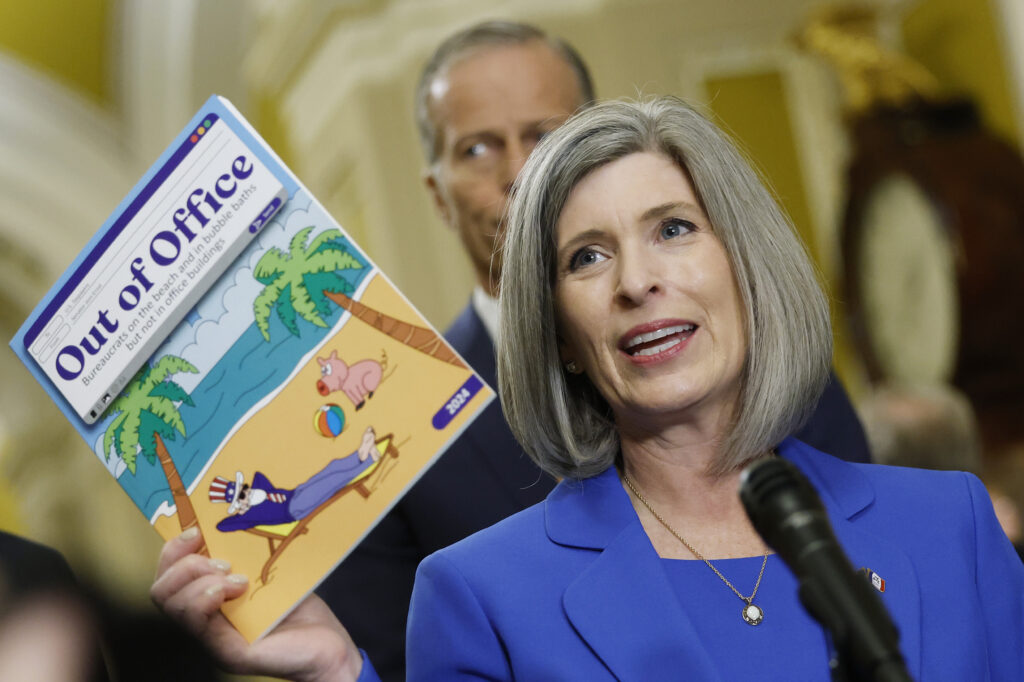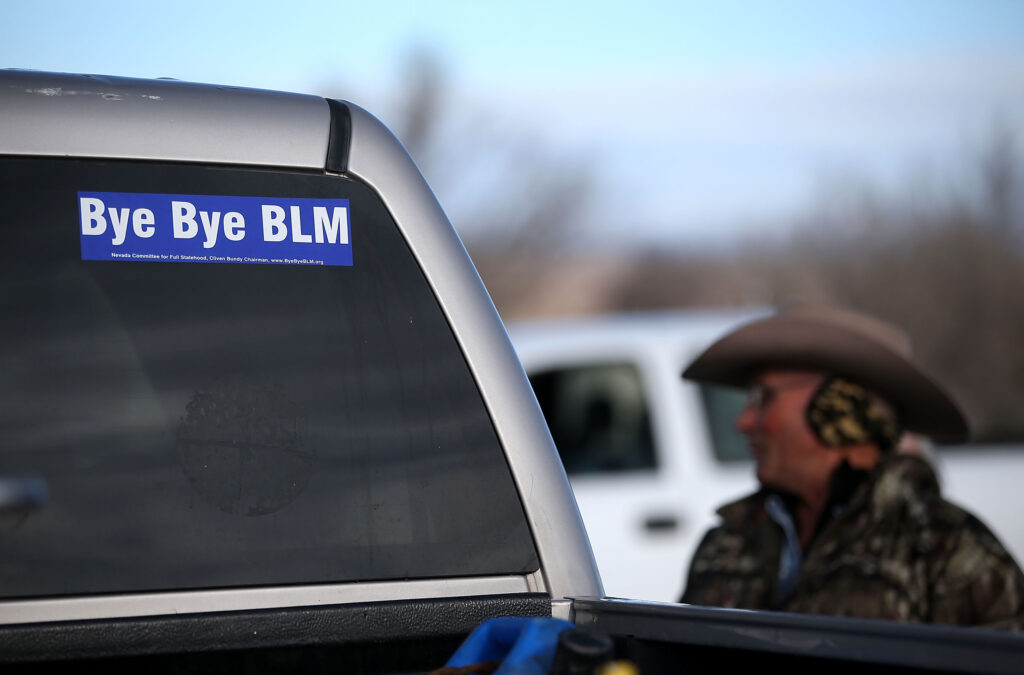GOP Condemns Federal Bureaucrats Working from Home, Slams Biden for Sneaking in Last Minute Protections
Congressman James Comer of the Oversight Committee says the Trump Administration will either force the employees back to the office, or force them out.

Republicans are promising to crack down on the legions of federal government bureaucrats who have been working at home since the end of the Covid pandemic once President Trump gets back in the White House, saying that these employees are wasting taxpayer funds by not being as efficient at home and by forcing Americans to pay for sparsely occupied office buildings.
In an interview with Fox News on Sunday, the chairman of the Oversight Committee, Congressman James Comer, lambasted the Biden Administration for agreeing to new, extended “telework” provisions for some federal employees as President Biden is on his way out the door.
“Joe Biden’s trying to burn it down on the way out with respect to the federal workforce. Every hardworking, tax-paying American who works in the private sector is appalled that such a high percentage of the federal workers aren’t showing up for work. They’re working from home,” Mr. Comer said.
The chairman pointed to a piece of legislation, the “Show Up” Act, which would restrict telework options for many federal employees. It was passed by the House with all Republicans and three Democrats voting in favor, though the Democratic Senate never took it up. Republicans will take back the Senate majority on Friday.

Just how many federal employees engage in telework is presently a matter of dispute. About 228,000 civilian government employees work entirely from a remote location, such as their home, according to a report the Office of Management and Budget was recently forced to produce for Congress. The OMB says this is about 10 percent of the federal government’s civilian workforce. Vastly more employees, however, work remotely part of the week.
But the OMB reports that 54 percent of federal employees are required, by nature of their jobs, to work in-person for their whole work week. This figure contradicts a recent investigation by Senator Ernst which found that only six percent of federal employees are in person all week. Ms. Ernst’s findings were, however, based on a 6,000-person poll of federal employees by the Federal News Network, which has asserted that the poll was “non-scientific” and included only responses from self-identified government employees.
Mr. Comer points to recent actions by the Biden administration as evidence that bureaucrats are getting a sweet deal that would allow expanded telework practices to remain in place before Trump returns. Just before Christmas, the Social Security Administration and the American Federation of Government Employees, a labor union, reached a deal to protect work-from-home options through 2029 — when Trump will have left the White House. That agreement would allow for up to three or four days of telework per week for most Social Security Administration employees.
The government’s work-from-home policies have come under increasing scrutiny after Ms. Ernst’s scathing report — with its six percent figure — described federal employees as “sitting on the beach and taking bubble baths,” padding their paychecks, and engaging in various other acts of indolence. The report also claims the White House has no idea where those telework employees are.

Ms. Ernst’s report was met with pushback from the government employees’ union, which claimed that 80 percent of all hours worked are “at their regular duty station.” Government Executive magazine, which has covered the federal workforce since the onset of the Nixon Administration, wrote earlier this month that “despite her bluster, the report failed to uncover any systemic abuse of the flexibility or that it made agencies less productive.”
Trump and his advisors have signaled they intend to curb the powerful federal bureaucracy which successfully resisted many of Trump’s attempts at reform during his first term. This time, his aides say, they know more and are better prepared. Reforms that have been carefully planned over the last four years include attempting to close entire agencies.
Another more realistic way to target federal employees which Trump’s advisers are considering is to forcibly relocate agencies or their subdivisions far away from the greater Washington D.C. area, which would compel many workers to resign if their family circumstances tied them to the capital region.
Late in his first term, Trump attempted to forcibly relocate the 10,000 employee Bureau of Land Management to remote Grand Junction, Colorado, population 69,000, in order to make the organization’s employees live near the vast tracts of federal land out west that they oversee. He ran out of time to enact the change, however, and the move was reversed by the Biden Administration.

Ms. Ernst is now the leader of the Senate DOGE caucus, which is meant to work hand-in-hand with Elon Musk and Vivek Ramaswamy’s “Department of Government Efficiency” once the new administration comes into office. Mr. Ramaswamy says demanding all employees return to the office would be a good way to weed out those who aren’t up to the task.
“If you require most of those federal bureaucrats to just say, like normal working Americans, you come to work five days a week, a lot of them won’t want to do that,” Mr. Ramaswamy told Fox News. “If you have many voluntary reductions in force of the workforce in the federal government along the way, great. That’s a good side effect of those policies as well.”
Telework for federal employees has not only raised questions about the efficiency of their work or the cost borne taxpayers to maintain empty buildings, but the practice has placed unnecessary strain on the District of Columbia.
Washington’s mayor, Muriel Bowser, says she has been frustrated by the emptiness of many of the enormous federal office buildings in D.C. because her constituents could be using the space for housing or their own small businesses if the federal government is choosing to just let them be vacant. In a 2023 interview with Bloomberg, Ms. Bowser says she noticed a distinct lack of street activity — which has downstream effects for small businesses who rely on foot traffic or passersby and for public transit that relies on fares — since the end of the pandemic.

“I look out of my office at [the Department of] Treasury every single day and I can see the level of activity or inactivity at work,” Ms. Bowser said. “What do you do with a building like that?”
She says that bureaucrats should either be forced back to work or the agencies should be consolidated into a smaller number of buildings so that her city can use them for other purposes, which would help strengthen neighborhoods and save the federal government money.
“Over time, they’ll have a plan about where they consolidate … and we want to be at the table to inform how their plan could be married to our plans,” the mayor said.

